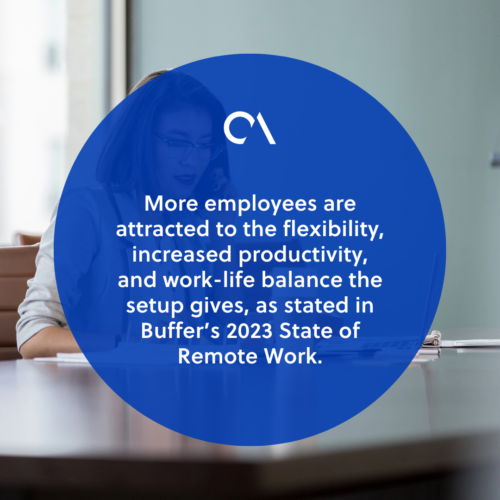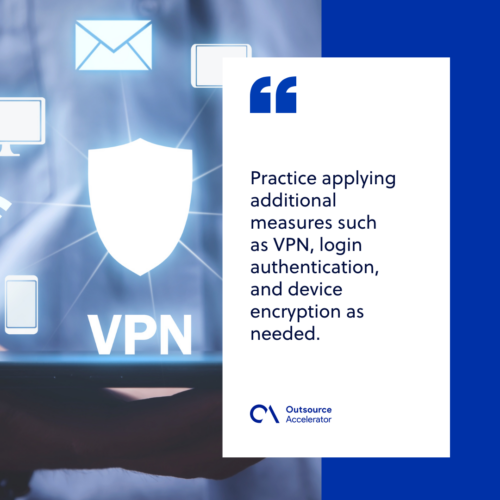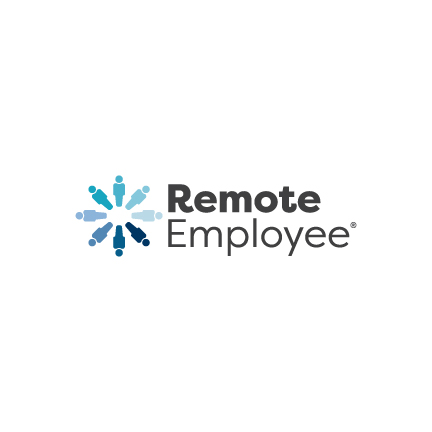Compliance considerations for remote employees

It’s official: remote work is here to stay.
Remote working in the US alone has become an increasing trend, if not spiking. More employees are attracted to the flexibility, increased productivity, and work-life balance the setup gives, as stated in Buffer’s 2023 State of Remote Work.
Though news reports and different studies have conflicting results, more companies have slowly realized the benefits of this setup.
On the other hand, you are still subject to complications in hiring staffing, like in traditional employment. It brings a new level of compliance you need to consider to ensure everything is in order.
Remote Employee takes you to the different compliance considerations when hiring a remote team.

Remote employees and compliances: What you should know
Apart from location, several aspects distinguish hiring a remote employee from hiring in-house staffing.
For one, companies hire remote employees for different reasons besides team expansion. They can employ remotely due to savings, flexibility, or convenience. Some even get remote teams due to the business’s remote-only nature.
Other things you should know about hiring remote employees are the following:
- Not all functions can be done remotely. Roles that require your staff to be physically present, such as building administration, should stay in the office. When hiring a remote employee, consider what roles can be done remotely and what should stay in-house.
- Remote work requires constant communication. You might easily dismiss your remote workers for your in-house team, making them feel left out and disconnected. Remote work requires constant contact for your setup to work.
- Remote employees thrive on recognition. One way to satisfy remote employees is by recognizing their hard work and effort. Find ways to show your appreciation for their work, such as sending incentives through cash bonuses and gift certificates.
- Hiring remote employees opens you up to diversity. Having remote teams is a good way to introduce diversity in your workplace. You get exposed to different cultures, characters, and office ethics, especially when hiring offshore teams.
6 compliance considerations for remote employees
Having remote employees does not excuse you from following compliances.
Even without a physical space, getting employees from other locations may subject you to following state laws and regulations where they live.
Below are the compliance considerations you should make for your remote employees:
- Payroll and benefits
Your team’s payroll and benefits vary depending on location, jurisdiction, and practices.
You might deal with sending out payments in different amounts, knowing their benefits, and consolidating your books in this manner.
The minimum wage varies by state and could increase yearly. Meanwhile, you are required to pay for benefits such as 401k and unemployment insurance based on your employee’s state.
Noncompliance with minimum wage standards could risk you from paying penalties and getting your reputation tarnished with your staff.

- Taxes
Aside from benefits, state and local taxes should be on your remote work compliance checklist.
The general rule is that employees pay their taxes to the location where work is completed, even without the company’s physical location there. This is referred to as “physical presence.”
In the US alone, income tax may vary depending on the state your employees are in. Some would even require withholding for local taxes if they live in select states, including:
- Alabama
- Delaware
- Michigan
- New York
- Pennsylvania
- West Virginia
Taxes would get trickier, depending on state agreement – or lack thereof – with a hybrid setup. Your employees could experience “double taxation” or getting deducted taxes on where they live and where you are located.
It’s best to consult an accountant regarding this matter.
- Labor laws and regulations
Labor laws and regulations could be complicated when you are in different states. With this, you must familiarize yourself with the remote work laws and jurisdictions where your employees are.
There are also instances where labor laws favor the employer’s location. For example, Washington State provides out-of-state guidelines for supporting telework and remote work within and outside the state.
Outside the US, different teleworking laws apply in other countries such as Argentina, Mexico, and Peru, stating what employers need to hire workers from there.
- Equipment and other expenses
Your team’s equipment and other setups for working should also be considered accordingly. Understandably, not all your employees can shell out their laptops and connections. Or, what they currently have is not at par with your requirements.
Check with your company policy regarding equipment for remote workers and how you can help your employees lacking them.
- Workers’ permits
Even when working from home, you or your employees must secure permits to work with your business. Check your team’s cities or countries and the procedure for securing one when needed.
A perfect example is Canada, where employees must secure a Canadian work permit before working remotely.
- Information security
Working with remote staff makes you vulnerable to exposing company data and other information.
As a compliance consideration, you must review your policies and set up measures to ensure the security of your company data. Practice applying additional measures such as VPN, login authentication, and device encryption as needed.
Some tools, such as Microsoft 365, provide disclosure on security compliance they offer for remote employees.

Creating a remote work-compliant environment through outsourcing
Adopting remote work is a good investment for your company, helping you save and become more efficient in the long run.
Like other business aspects, having remote employees requires investing in resources that could be out of your budget.
It’s good to start hiring remote workers within or near your location. You can review the employment laws, benefits, and procedures of nearby areas as your headstart on what you need to work with your teams.
Meanwhile, offshore outsourcing is a great way to hire a remote workforce and ensure compliance.
Let service providers like Remote Employee help you source the best staff and handle compliance requirements on your behalf.
With years of experience in the industry, Remote Employee is well aware of handling payroll and benefits, as well as labor compliance in the Philippines. They can take care of the legalities of hiring remote employees for you.
This way, you can share compliance risks in employment while having your functions optimized for a fully-digital environment.







 Independent
Independent




